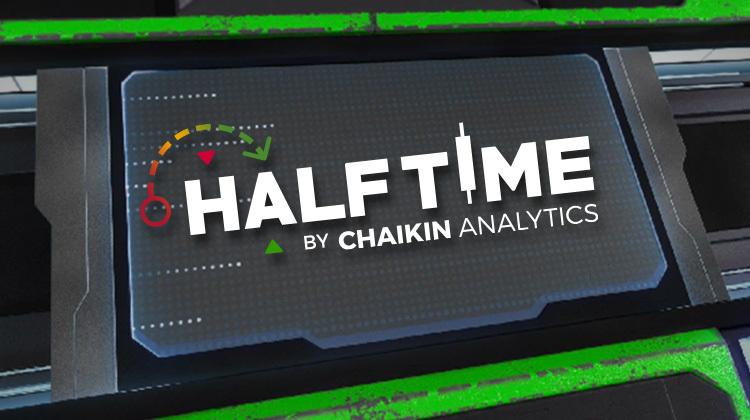Since the House Budget Committee passed the Fiscal Commission Act out of committee in January, several critics have come out of the woodwork to argue against the bill. Criticism ranges from calling the commission process undemocratic, to claiming that Social Security and Medicare (or at least Part A) don’t contribute to the debt, to worrying about tax increases that might get passed under false pretenses, to calling the commission a death panel.
Below I list prominent critiques and their main charges, and defuse each argument in turn:
Claim: “Social Security and Medicare Part A are fully self‐funded and do not contribute to the debt…(National Committee to Preserve Social Security and Medicare); “Social Security and Medicare “should be protected in any discussion about the debt or deficit…Social Security is not a driver of the nation’s debt, so it shouldn’t be cut to pay it off.” (AARP)
Response:
Social Security and Medicare are major contributors to the US budget deficit (making up 11 and 33 percent of the 2023 deficit, respectively) and national debt, with no real assets to back up their promises. Both old‐age benefit programs face a huge funding gap that will require either benefit cuts or tax hikes in the near future. These programs are financially unsustainable and require reform to avoid indiscriminate benefit cuts by 2031 for Medicare and by 2033 for Social Security. You can find more details about the dire financial situation of these programs here.
Claim: “Any changes to Social Security and Medicare should go through regular order and not be relegated to a commission unaccountable to the public and rushed through the Congress.” (National Committee to Preserve Social Security and Medicare)
Response:
The 16‐member fiscal commission consists of 12 elected officials who are accountable to the public, and only elected officials are eligible to vote on the commission. The commission’s proposal would benefit from expedited procedures in Congress but would still need to be voted on by both the House and Senate, including clearing the 60‐vote Senate threshold, plus clearing the president’s desk as a final step. Hardly an unaccountable process. Moreover, the federal budget process is broken, and Congress rarely follows regular order. In the 49 years since the budget process was established, Congress followed regular order only four times. In 17 of these 49 years, Congress avoided passing any budget, period. You can find more details about the fiscal commissions’ design and limited powers here.
Claim: The biggest drivers of the debt are ‘tax expenditures’ – giveaways to the wealthy and large corporations like the Trump/GOP tax cuts of 2017 that Republicans insist be extended.” (National Committee to Preserve Social Security and Medicare)
Response:
Spending increased 42 percent, as a percentage of gross domestic product (GDP) between the peak budget surplus in 2000 and 2022. Revenues declined by a measly 2 percent over that same period. Clearly, the growth in spending is the biggest driver of US debt. My colleague Adam Michel gave congressional testimony on this very topic. He wrote:
“Current data show that if the Treasury collected as much revenue [today] as it did in 2000 when it had a 2.3 percent budget surplus, it would still have a budget deficit of about 5.1 percent of GDP [today]. Between 2000 and 2022, total federal outlays as a percent of GDP increased by 7.4 percentage points, from 17.7 percent to 25.1 percent, according to Office of Management and Budget data. Figure 4 shows that total receipts fell by 0.4 percentage points during the same period, from 20.0 percent to 19.6 percent. In 2000, the federal government had a budget surplus of 2.3 percent of GDP; by 2022, the surplus had turned into a deficit of 5.5 percent of GDP.”
Claim: “This commission is a power grab that is trying to bypass the regular democratic process by hiding behind closed doors and fast‐tracking a plan that escapes public scrutiny and accountability, and rips away the security older people rely on and have paid for….” (AFL-CIO); “a fiscal commission that represents the interests of wealthy elites can be set up with special procedures to bypass Congress. That means, the people we elect to represent us might not even get a say in whatever cuts a fiscal commission proposes.” (AFGE)
Response:
Quoting Michael V. Murphy who is senior vice president at the Committee for a Responsible Federal Budget on this one:
“Commission critics charge that it would set up a secret, behind‐closed‐doors way to slash Social Security and Medicare. This is nonsensical and irresponsible.
The legislative language and public statements by bill supporters during congressional hearings make clear that all options would be on the table for the commission to consider, including additional tax revenues. The bill requires public hearings and an awareness campaign to engage the public to be part of the commission’s work. And any recommendations still must be approved by a three‐fourths majority of commission members, as well as the full Congress, and signed by the president — hardly a secret process.”
Claim: “The American people want more jobs and lower costs, not a death panel for Medicare and Social Security.” (White House Deputy Press Secretary Andrew Bates)
Response:
Calling the fiscal commission a “death panel” is a gross misrepresentation of a bipartisan process to identify reforms to stabilize the debt and avoid a US fiscal crisis. Critics charge that the commission will end or “kill” these important programs, as we know them. The commission is actually designed to save these programs, requiring Congress to improve Medicare and Social Security’s solvency over the long term, instead of allowing indiscriminate benefit cuts to take place.
Not adopting the commission is more likely to be a death sentence for these programs, or at least put undue stress on the most vulnerable beneficiaries by threatening them with sudden and severe income reductions and access to health care when the trust funds run dry (in 2031 for Medicare, and in 2033 for Social Security).
Turns out similar death panel myths have been around since at least the Affordable Care Act debate. And they are difficult to correct due to human bias. If you’re already inclined to believe me, you may find my argument that the commission is the opposite of a death panel convincing. However, if you’re inclined to believe the Biden administration, my trying to persuade you otherwise just made you believe the death panel claim more. This is according to research by Peter Ubel of Duke University’s Fuqua School of Business, Brendan Nyhan of Dartmouth College, and Jason Reifler of Georgia State University, who argue that:
“This ‘backfire effect’ complicates any efforts to overcome misinformation…. This quirk represents a fundamental problem of human nature—we are more apt to believe those things that we want to be true and disbelieve those things that we don’t want to be true. When evidence and beliefs collide, it is easier to change how we view evidence than it is to change our beliefs.”
Claim: “[The fiscal commission] is a tax trap designed to get Republican fingerprints on a tax increase in exchange for ‘spending cuts’ that never materialize.” (Americans for Tax Reform and the following co‐signers: American Commitment, Center for Free Economy, Club for Growth, Competitive Enterprise Institute, Independent Women’s Voice, Job Creators Network)
Response:
The fiscal commission does not explicitly call for tax increases to close the fiscal gap, and it also does not rule them out. Quoting Jason Pye with FreedomWorks on this point:
“The criticism is that a fiscal commission would be a vehicle for tax increases because the Fiscal Commission Act includes language that would require the commission to ‘propose recommendations that meaningfully improve the long‐term fiscal outlook, including changes to address the growth of direct spending and the gap between the projected revenues and expenditures of the Federal Government.’ This is the only mention of revenues in this context in the bill. The opposition to the Fiscal Commission Act borders on the irrational…”
Because growing spending is the primary cause of rising deficits and debt, any serious proposal should significantly reduce spending and adopt structural reforms that rein in automatic spending increases that are out of line with revenue projections. Tax increases are not the answer to a spending‐driven debt problem. Higher taxes without significant old‐age benefits and health care reforms are more likely to fuel higher spending while depressing economic growth. That’s a recipe for failure and economic stagnation.
A Promising Step in the Right Direction
While the current fiscal commission approach is far from perfect, it is a positive step toward bringing more attention to the nation’s rapidly deteriorating fiscal state and advancing proposals to avert a severe fiscal crisis or a prolonged economic decline. At a minimum, the fiscal commission would make policymakers and the public aware of the policy and economic tradeoffs of fiscal reform.
Given current deficit projections, a future without fiscal reforms will likely be characterized by repeated bouts of inflation, as the federal government comes to increasingly rely on the Federal Reserve to finance the exorbitant US debt through fiscal quantitative easing. The US budget is highly unsustainable, and a well‐designed fiscal commission offers the greatest promise for overcoming the congressional gridlock and unproductive partisanship that has stifled reasonable reform options thus far.
Perhaps these critiques are a good sign. It may mean that opponents are getting a strong sense that Congress is finally getting serious about tackling the worsening debt crisis before it gets out of hand. The status quo is untenable. Let’s give the commission a fair shot.
Note: A previous version of this post compared spending in 2001 (the last time the federal government had a budget surplus) and 2022. The piece has been corrected to compare spending in 2000 (peak budget surplus) and 2022.

























